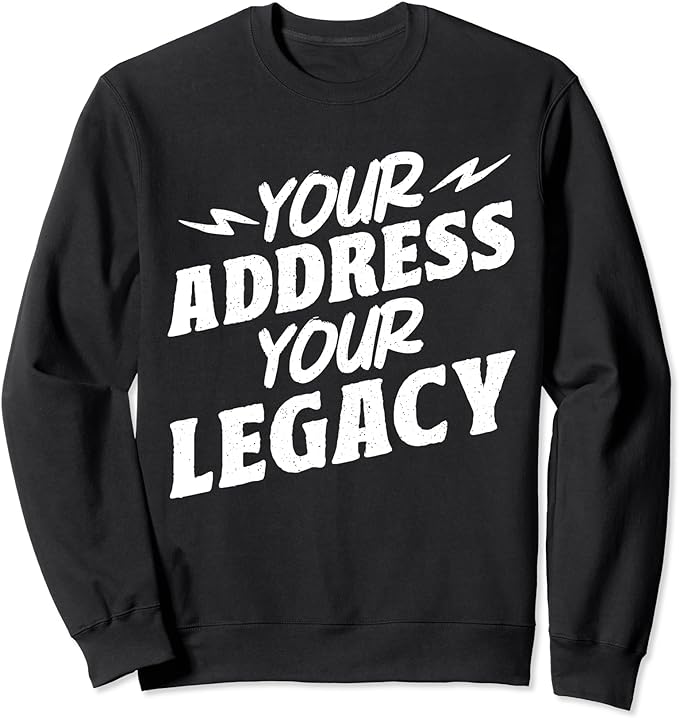Estimated reading time: 14 minutes
Introduction
Understanding what is a legacy house invites us into a meaningful conversation not just about property, but about a distinct concept that deeply connects with a client’s emotions and family history. A legacy house represents more than a place of residence; it serves as a central hub where families have gathered to dine, celebrate, and share their collective journey. It goes beyond the usual expenses involved in home upkeep, emerging as a vital element of a family’s story.
The privacy a legacy house provides, its selection as a valued space across generations, the policies established for its preservation, and the intent to keep it within the family—all these elements highlight its importance. It’s a place where families may hunt for Easter eggs as part of a longstanding tradition, or where guests are received during special occasions. Overlooking the fees and financial aspects of such a property, it symbolizes the legacy and principles families aim to pass on. This house is a palpable connection to bygone eras and a guiding light for descendants, playing a pivotal role in shaping family identity and heritage.
Key Takeaways
- Definition and importance of a legacy house.
- How legacy houses contribute to family heritage.
- Differences between legacy houses and typical real estate.
- Legal and financial considerations for legacy houses.
- The role of legacy houses in estate planning.
- Managing and maintaining a legacy house for future generations.
The Emotional and Historical Value of a Legacy House
The emotional and historical significance of a legacy house is significant, often viewed as a client foundation in building a legacy rather than merely the sale of the property. These homes act as a branch of the family’s lineage, places where relatives use the home for gatherings, aiming to retain its spirit while contemplating improvement to maintain its appeal. As an entity passed down to future generations, it’s essential to make it easier for descendants to value, rather than force a sale due to the burden on future heirs. Typically, families hire an agent or establish a limited liability company (LLC), seeking guidance on decision-making that is flexible enough to adapt to both day-to-day requirements and broader shifts over time. Through this approach, the calendar of family milestones continues, enhancing the home’s legacy.
Emotional Aspects
- Memories: Each corner of a legacy house is imbued with anecdotes and milestones, from the laughter of family gatherings to the silent whispers of intimate moments.
- Heritage: These houses are archives of family history, holding artifacts and styles that tell the story of ancestors and their times.
- Family Bonds: Legacy homes are the grounding force that keeps the family connected, a common ground where past, present, and future generations meet.
- Tradition: They are the epicenters of family traditions, be it annual reunions, holiday celebrations, or simple Sunday dinners.
- Legacy: Legacy houses represent the continuity of family lineage, carrying forward the family name and values.
- Identity: They are more than an address; they become a part of the family’s identity, shaping how members see themselves and are perceived by others.
Unveiling the Architectural Heritage
Legacy homes are often architectural marvels representing various eras and styles. From Victorian mansions to cozy cottages, each structure has its unique story, reflective of the era it was built in and the people who built it. Exploring these architectural details not only uncovers the aesthetic choices of ancestors but also sheds light on the historical context of those times.
“Our family’s legacy house is like a living museum, each room echoing the tastes and times of those who lived before us.” – Jane Doe, third-generation homeowner.
A Cultural Mirror in Literature and Arts
Legacy houses have been a recurring motif in literature and arts, often depicted as characters in their own right. They are symbols of stability or change, representing the emotional and societal shifts of the characters associated with them.
Families and Their Heirloom Homes
Personal anecdotes about legacy houses paint vivid pictures of the love, care, and sometimes conflict these properties witness. They are tales of joy, sorrow, and everything in between, narrated by the walls that have stood witness to generations.
The emotional and historical value of a legacy house is profound and multifaceted. It’s a living chronicle of a family’s journey, a tangible connection to the past, and a beacon for future generations.
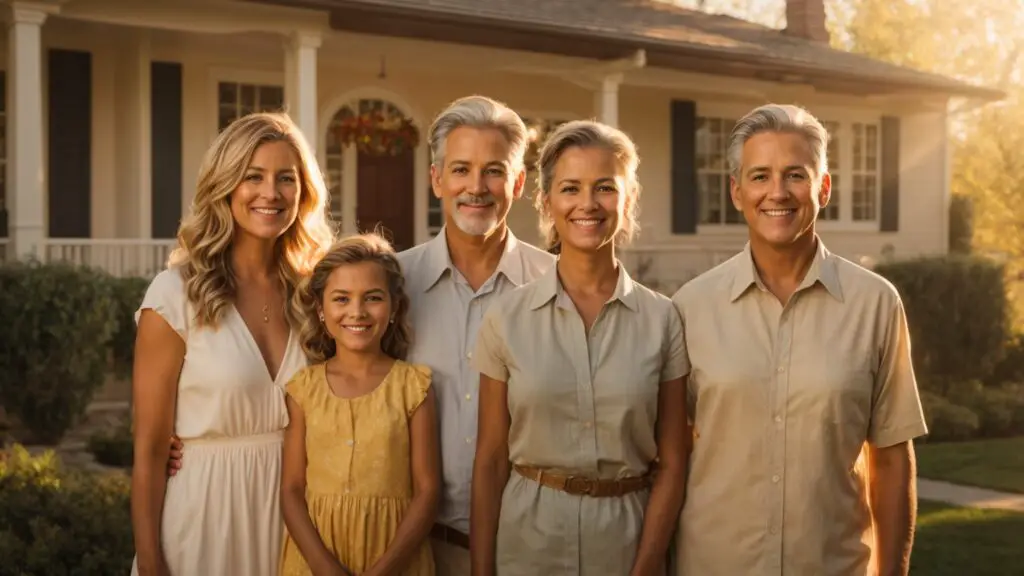
Legal and Financial Aspects of Legacy Houses
Navigating the legal and financial components of legacy houses requires strategic preparation, particularly as you’re building a solid base for the first generation. By you’re setting a standard in the property’s upkeep that you’ve thoughtfully chosen, it guarantees quality craftsmanship designed to endure through time. These properties become shared among relatives, forming a special place for movie nights, dinner parties, and gatherings in the dining room. Such emotional attachment may eventually lead to the need for legal structures that entitle descendants and prohibit conflicts, aiming to keep the estate both functional and justify the much money spent on its preservation. Leveraging expertise in legal and financial fields is crucial to ensure the eventual passing of the property goes smoothly, reinforcing its importance in family legacy.
Legal and Financial Considerations
- Estate Planning: Tailoring estate plans to include specific provisions for legacy houses.
- Tax Implications: Understanding property taxes, inheritance taxes, and other fiscal responsibilities.
- Succession Plans: Establishing clear succession or transfer plans to avoid disputes.
- Ownership Structures: Consider trusts, LLCs, or co-ownership agreements for better management.
Crafting an Estate Plan with Legacy Houses in Mind
Estate planning for legacy houses requires careful thought and strategy. It’s about balancing the emotional desires of the family with the practicalities of law and finance. This involves designating heirs, discussing plans with family members, and possibly setting up trusts or other legal structures to manage the property.
Estate Planning Strategies
| Strategy | Legacy House | Regular Property |
|---|---|---|
| Trusts | Often used to manage and preserve the house | Less common, mostly for tax purposes |
| Heirs | Usually involves multiple generations | Typically immediate heirs |
| Legal Structures | Trusts, LLCs for shared management | Simple ownership or joint tenancy |
Financial Sustainability of Legacy Homes
The upkeep of a legacy house can be financially demanding. Owners must know ongoing costs like maintenance, renovations, and property taxes. A clear financial plan is crucial, possibly creating a maintenance fund or exploring income-generating options like renting out a portion of the property.
The legal and financial aspects of owning a legacy house can be complex, but with careful planning and open communication among family members, these challenges can be navigated successfully, ensuring the house remains a cherished family asset for generations.
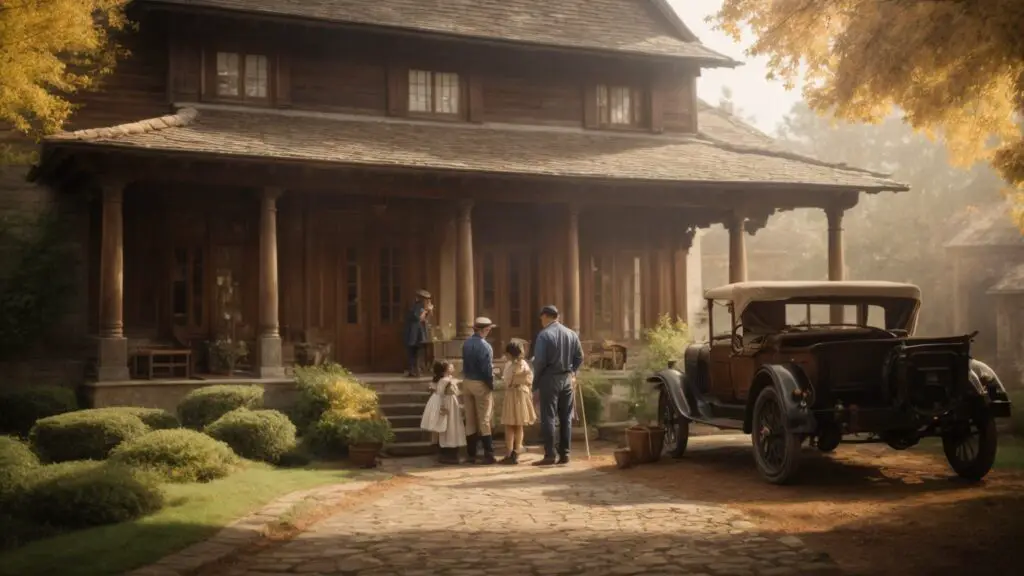
Preserving a Legacy House for Future Generations
Preserving a legacy house for future generations is both a responsibility and a privilege. It involves a commitment to maintaining the house’s physical structure and spirit, ensuring it continues to be a source of pride and history for the family.
The Anderson Manor: A Century of Preservation
The Anderson Manor, a colonial-era house passed down through five generations, exemplifies successful preservation. The family has maintained the original architecture while modernizing essential facilities, showcasing a perfect blend of history and contemporary living.
Balancing History with Modernity
Maintaining the integrity of a legacy house often means thoughtful renovations that respect the house’s historical aspects. This includes using period-appropriate materials and designs for repairs and balancing the need for modern amenities with the desire to preserve the house’s original character.
Preservation Techniques
- Restoration: Returning the house to its original state.
- Modernization: Updating facilities for contemporary comfort.
- Conservation: Protecting the house from deterioration.
- Sustainability: Incorporating eco-friendly practices.
Modern Comfort in Historical Settings
While preserving the historical essence, adapting legacy houses to modern living standards is important. This includes updating electrical systems, plumbing, and heating and perhaps adding modern conveniences like smart home technology while maintaining the house’s historical charm.
Setting Legal Grounds for Inheritance
Creating a legal framework for the future inheritance of the legacy house ensures smooth transition and preservation across generations. This may involve setting up trusts, drafting clear wills, or creating family agreements to outline the management and responsibilities of future heirs.
Preserving a legacy house requires a delicate balance between honoring its historical significance and adapting it for future needs. It’s a collaborative effort that involves legal, financial, and emotional investment, ensuring the legacy house remains a treasured family heirloom.
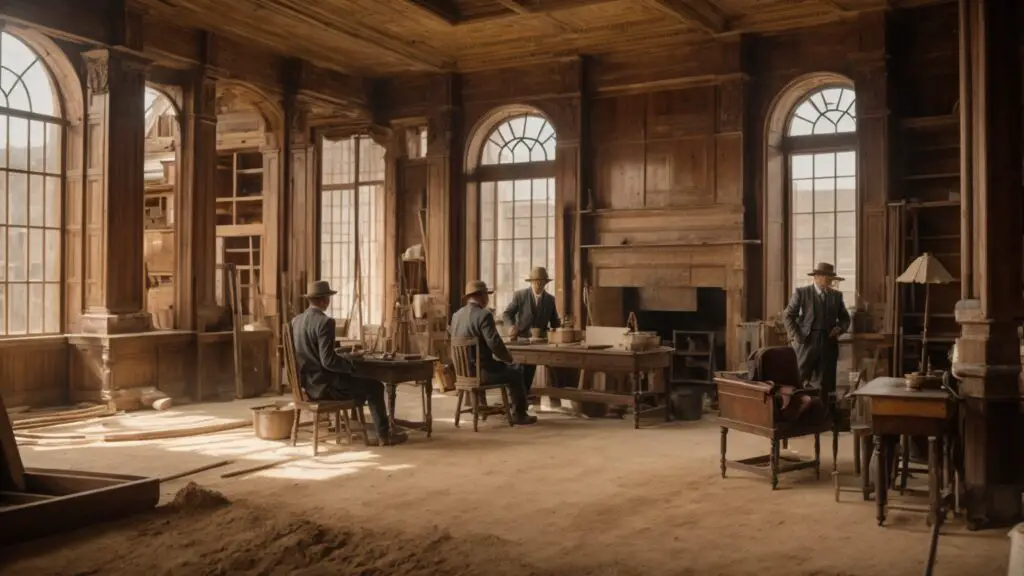
The Role of Legacy Houses in Family Heritage
Legacy houses play a pivotal role in shaping a family’s heritage. They are not just structures made of brick and mortar but repositories of stories, traditions, and values passed down through generations. These houses often become symbols of a family’s identity and continuity.
Impact of Famous Legacy Houses on Family Legacies
| Legacy House | Family | Impact on Heritage |
|---|---|---|
| The Vanderbilt Mansion | Vanderbilt Family | Symbol of Gilded Age opulence and philanthropy |
| The Hemingway House | Hemingway Family | Reflection of literary greatness and adventurous spirit |
| The Kennedy Compound | Kennedy Family | Emblematic of political legacy and public service |
Narrating Family History Through Legacy Homes
The walls of a legacy house often have stories to tell, each room holding memories of joyous celebrations, personal triumphs, or even moments of sorrow. These stories become an integral part of the family narrative, shaping the identity and values of current and future generations.
“In every room of our ancestral home, you can feel the presence of our forebears, their triumphs and struggles, all contributing to who we are today.” – Alexander Hamilton, a descendant of a historic family home.
The Legacy of the Windsor Estate
The Windsor Estate, a sprawling country house, has been in the Windsor family for over two centuries. Its role in family gatherings, weddings, and even as a refuge during hard times has made it a central figure in the family’s history and a symbol of resilience and unity.
Legacy houses are much more than physical dwellings; they are the heart of family heritage. They are tangible connections to the past and are crucial in shaping and preserving family identity, culture, and values.
Challenges and Solutions in Legacy House Management
Managing a legacy house presents unique challenges, from maintenance and legal issues to navigating family dynamics. Addressing these challenges effectively is essential to preserve the legacy house as a cherished family asset.
Challenges
- Maintenance: Ensuring the house remains in good condition.
- Legal Issues: Dealing with inheritance laws and property rights.
- Family Disputes: Managing differing opinions and interests among family members.
- Financial Burdens: Covering the costs associated with a large, historic property.
Harmonizing Family Interests in Legacy House Management
Legacy houses can sometimes become a source of contention within families, especially regarding maintenance, usage, or inheritance decisions. Open communication, clear agreements, and sometimes professional mediation are key to navigating these challenges and ensuring that the House remains a unifying force rather than a divisive one.
Ensuring the Economic Viability of Legacy Homes
While legacy houses carry immense emotional value, they also require financial resources for upkeep and maintenance. Exploring avenues for income generation, such as hosting events or short-term rentals, and setting up maintenance funds can help manage the financial aspects of legacy house upkeep.
“Balancing the sentimental value with the practical costs of maintaining a legacy house requires creativity and careful planning.” – John Smith, Estate Manager.
Effectively managing a legacy house involves overcoming various challenges, particularly maintenance, legal issues, family dynamics, and financial sustainability. Finding solutions that respect the house’s heritage while adapting to modern realities is key to preserving these precious family assets.
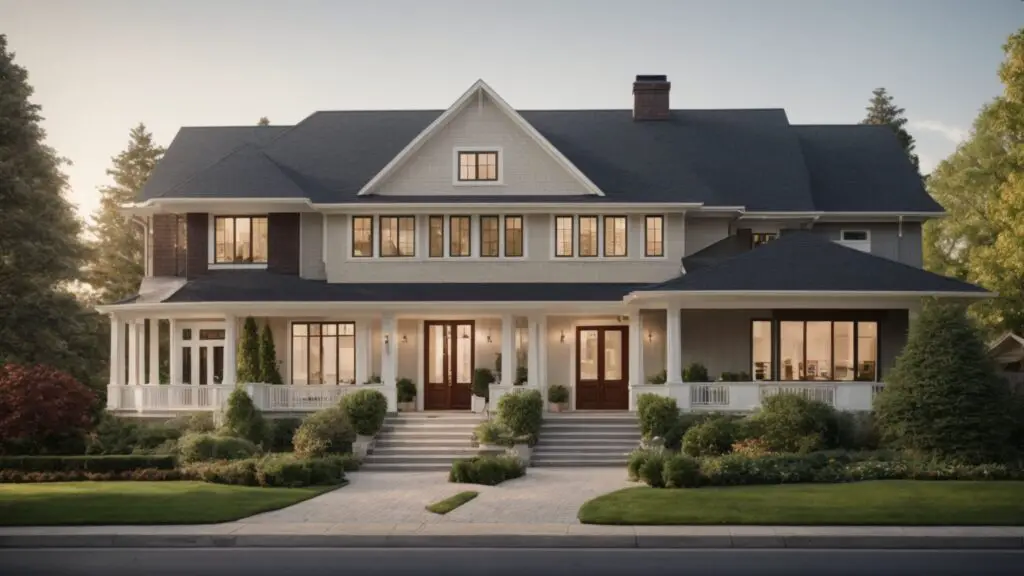
Comparing Legacy Houses with Conventional Properties
Understanding the unique characteristics of legacy houses compared to conventional properties is essential. These distinctions go beyond physical aspects, encompassing emotional, historical, and financial dimensions.
The Intangible Worth of Legacy Houses
The value of a legacy house is not solely in its market price but in its emotional and historical significance. These properties are cherished for their material worth and irreplaceable place in a family’s history and identity.
Navigating the Real Estate Market with Legacy Properties
Legacy houses often behave differently in the real estate market. They are not just bought and sold based on market trends but are more often passed down through generations. This unique status can affect their marketability, pricing, and appeal to buyers.
Comparisons
- Emotional Value: Legacy houses are imbued with sentimental worth, unlike regular properties.
- Long-term Investment: They are often viewed as long-term family assets rather than short-term investments.
- Market Behavior: The market dynamics for legacy houses can be less predictable and influenced by emotional and historical factors.
- Inheritance Considerations: Legacy houses often have complex inheritance considerations, unlike standard properties.
Legacy Houses vs. Regular Properties
| Aspect | Legacy House | Regular Property |
|---|---|---|
| Emotional Value | High | Variable |
| Investment Outlook | Long-term heritage asset | Market-driven investment |
| Market Dynamics | Less influenced by market trends | Highly influenced by market trends |
| Inheritance | Complex, often multi-generational | Simpler, usually immediate heirs |
Real Estate Professionals on Legacy vs. Regular Properties
Experts in the real estate field often highlight the unique challenges and rewards of dealing with legacy houses. These properties require a different approach, considering their emotional significance and the complexities involved in their transfer and maintenance.
“Legacy houses are more than just properties; they’re pieces of history. Their value transcends market trends.” – Emily Johnson, Real Estate Historian.
Legacy houses stand apart from conventional properties in many ways, from their emotional value to their behavior in the real estate market. Understanding these differences is crucial for anyone managing, inheriting, or selling such properties.
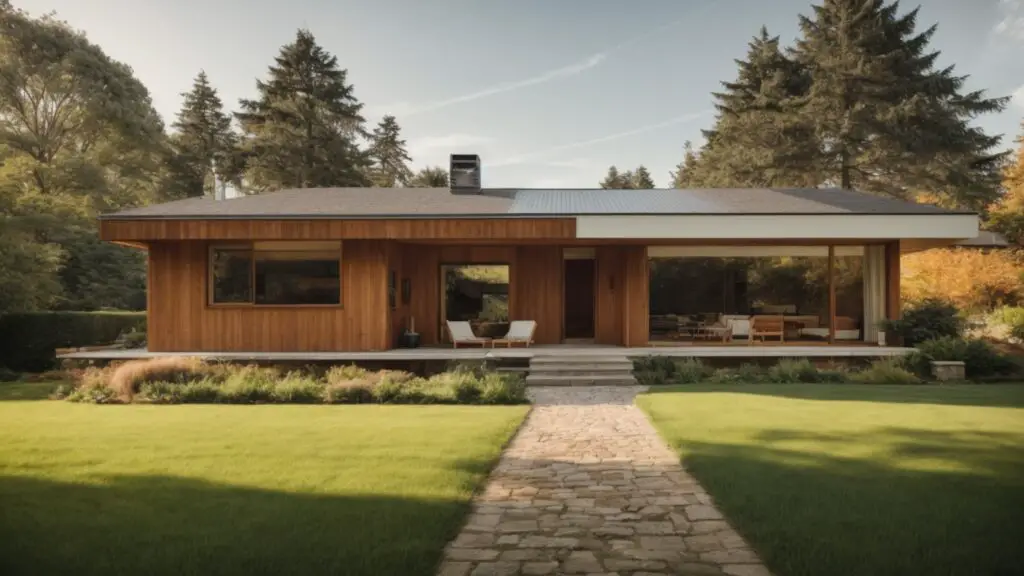
Legacy House Case Studies
Exploring case studies of legacy houses provides valuable insights into the challenges, triumphs, and unique stories these properties hold. Each case study offers a glimpse into the multifaceted nature of legacy houses and their impact on families.
Tales from Time-Honored Estates
Historic legacy homes, often centuries old, carry stories of different eras, reflecting the changes in society, architecture, and family dynamics over time. These houses are not just homes but part of history’s larger tapestry.
The Livingston Manor: A Legacy of Leadership
The Livingston Manor, dating back to the 18th century, has been a political and social hub, hosting influential figures and witnessing pivotal historical moments. The manor’s journey through wars, social changes, and family transitions offers a rich narrative of resilience and adaptation.
Contemporary Families and Their Heirloom Homes
Modern-day legacy houses may not have centuries of history, but they are fast becoming the new generation’s heirlooms. These properties reflect current architectural trends and modern family dynamics while still holding the essence of a family’s legacy.
Key Lessons from Legacy House Histories
The successes and failures encountered in managing legacy houses offer valuable lessons. These experiences provide insights into effective preservation strategies, legal and financial planning, and the importance of family communication and agreement.
Whether historical or contemporary, case studies of legacy houses provide a rich source of learning and inspiration. They highlight the complexities, challenges, and joys of preserving these unique properties for future generations.
Future of Legacy Houses
The concept of legacy houses is evolving, influenced by changing societal norms, technological advancements, and shifting family structures. Understanding these trends is crucial for families aiming to preserve these homes for future generations.
The Reinvention of the Blackwood Estate
The Blackwood Estate, a traditional family home, has been transformed to meet the needs of the 21st century while maintaining its historical essence. This case study exemplifies how modern families are reinterpreting the concept of legacy houses.
Embracing Modernity in Historic Settings
Advancements in technology are offering new ways to maintain and manage legacy houses. Smart home systems, sustainable energy solutions, and digital archiving are examples of how technology is integrated into these historic properties.
Adapting to Modern Family Structures
As family structures evolve, so does the concept of a legacy house. Today’s families may include blended families, international members, and more diverse lifestyles, impacting how legacy houses are used, maintained, and passed down.
Trends and Predictions for Legacy Houses
| Trend | Impact on Legacy Houses |
|---|---|
| Technological Integration | Enhancing maintenance and sustainability |
| Changing Family Structures | Adapting usage and inheritance plans |
| Environmental Awareness | Shift towards eco-friendly preservation |
The Green Evolution of Heritage Properties
Sustainability is becoming increasingly important in the management of legacy houses. Families are exploring ways to reduce the environmental footprint of these homes, from energy-efficient renovations to sustainable landscaping practices.
The future of legacy houses is one of adaptation and innovation. By embracing new technologies, adjusting to changing family needs, and prioritizing sustainability, these homes can continue to be treasured family assets, evolving with the times while preserving their historical essence.
- Solid colors: 80% Cotton, 20% Polyester
- Heather Grey: 75% Cotton, 25% Poly
- Dark Heather: 50% Cotton, 50% Polyester
Conclusion
Legacy houses are much more than physical structures; they are the heart and soul of family heritage. They embody the past, present, and future, holding within their walls the stories, traditions, and values of the families that have lived in them. From their emotional and historical significance to their management’s legal and financial aspects, legacy houses present a unique set of challenges and rewards.
Through this exploration of legacy houses, they require a delicate balance of preservation and adaptation. Families must navigate the complexities of maintaining these homes while ensuring they remain relevant and sustainable for future generations.
As society and technology evolve, so will the concept of legacy houses. But one thing remains constant: their role as enduring symbols of family heritage and identity. They are not just buildings but legacies passed down through generations, each with a unique story.
James Dunnington leads the James Dunnington Collection, featuring five unique blogs: a practical Pet Care Guide, an enlightening Ancient History Blog, a resourceful Home Improvement Guide, a cutting-edge Tech Innovation Guide, and a strategic Online Money Making platform. Each site delivers valuable insights designed to empower and inform. For updates and more tips, visit our Contact Us page to sign up for our newsletter, ensuring you never miss out on the latest content from any of these dynamic fields.
